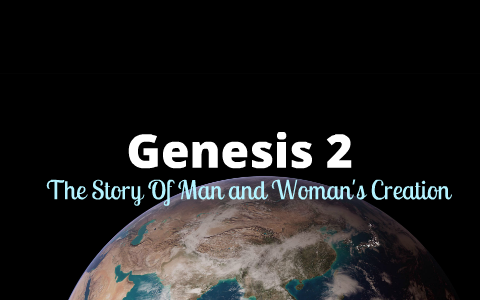I am excited about the beginning of a new calendar year and our renewed study of Genesis. We have previously walked through the Creation Story of Genesis 1. During Epiphany this year, we will continue our walk through Genesis with a study of Adam and the Fall in Genesis 2-3. The only thing you will need to participate in the study is your Bible.
As we looked at during our study of Genesis 1, these early stories in the Bible often read differently in the Hebrew and in the Ancient Near Eastern context than they do in English in modern America. The depth, richness, and sometimes ambiguity of the Hebrew are often lost in translation. A focus of our study will be on the actual words used in Genesis and how those words impart a deeper meaning to the text.
The Beginning:
The beginning of our story this year is similar to the beginning of the story of Creation, but in the dissimilarities lies the focus of the story. Read and compare the wording of Genesis 1:1-2a and Genesis 2:4b-5.
| In the beginning | In the day that |
| God | the Lord God |
| created the heavens and the earth. | created the earth and the heavens, |
| The earth was without form and void | when no plant of the field was yet in the earth and no herb of the field had yet sprung up |
The overall structure of both accounts is that the sovereign God purposefully and willfully creates (the same Hebrew word bara is used in both accounts) and that at the time of creation the earth was lifeless. The understanding that God creates and is the source of all life is the first teaching in both accounts. But there are two major differences between Genesis 1 and Genesis 2 that tell us the reader that the second account is going to be more intimate and immanent than the first.
An Immanent Creation:
First, we see that the name of God differs. In Genesis 1, the Divine is called Elohim. “El” is the generic Hebrew word for “god” and the Hebrew suffix -im can either make a word plural or make the word superlative or majestic. Our previous discussion on this Name is Here.
Genesis 2 uses the term “Yahweh Elohim.” Yahweh is the proper name of the God of Israel as disclosed to Moses in the burning bush. Ex 3:16. Yahweh is the personal God of Abraham, Isaac, and Jacob. Although Yahweh is used over 6,000 times in the Hebrew Scriptures, and Elohim is used over 2,500 times, the term “Yahweh Elohim” is used only 38 times, of which more than half are used in Genesis 2-3. By using both the name of the transcendent God of Creation and the immanent personal God of Moses and the Patriarchs, the Scripture is telling us that this creation story is going to be both transcendent and immanent, both cosmic and personal.
The second difference is the two accounts is the ordering of the terms “heaven and earth.” In this ordering, the Scriptures are telling us where the emphasis lies. Genesis 1 is the story of the creation of the cosmos. Genesis 2 is giving us a more complete account and understanding of the creation of the earth and of us. This creation account will be more intimate and personal than the first one. As we work through our study, we will continuously see this very immanence of God in relation to his creation and particularly to humanity.
The Initial State:
Genesis 2 describes the initial state of the earth to be without plants or herbs, without rain, and without people. There is no life on the earth. It is a waterless, lifeless, desert. A contrast to this initial condition is found in Psalm 104:14-23. Plants provide the basis for all life to exist, but there are none at the beginning. Rain provides the water for the plants and is also a synonym for God’s blessing (See, Deut. 28:12, Isa 44:3, Ps. 72:6), but there is none at the beginning. People are to cultivate and give order to the world (See, Gen. 1:26, Ps. 104:23), but there are none at the beginning. This is the set-up for our story to come.
Dinner is at 6. The menu is chicken cacciatore. Discussion about 6:45. Compline at 8. Hope to see you here.
You water the mountains from your dwelling on high; *
Psalm 104: 13-16
the earth is fully satisfied by the fruit of your works.
You make grass grow for flocks and herds *
and plants to serve mankind;
That they may bring forth food from the earth, *
and wine to gladden our hearts,
Oil to make a cheerful countenance, *
and bread to strengthen the heart.

